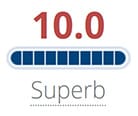Today’s populations demand equity. Unfortunately, some areas of society and some individuals base their treatment of others on characteristics they have no control over. In health care, this treatment is often inhumane and appalling.
When individuals go to a clinic or hospital, they should receive the same care as everyone else in the facility. Although most medical professionals do their best to provide the services each person needs, some may encounter These are common healthcare biases.
Implicit versus explicit bias
Implicit bias is indirect. This means that individuals may hold biases that they do not recognize consciously. However, these attitudes and beliefs impact how they treat or think about others. Explicit bias includes racist, homophobic or sexist attitudes that these professionals are aware of. These people understand that they treat others differently based on their beliefs.
Common healthcare biases
Bias is evident in diagnostics, including misdiagnoses or uncertainty based on race. Some patients also experience poor communication and clinical interactions, lack or ineffective pain management and care that is not patient-centered. Clinicians may also make assumptions about health based on weight, race, location, sexual identity, education, socioeconomic status, age, gender and ableism.
For example, clinicians may assume that overweight individuals are lazy, weak-willed, will not complete treatments or follow recommendations or lack self-control. These assumptions can impact how the clinician treats these individuals.
To overcome these biases, medical professionals should receive additional training, additional interactions with marginalized groups and more in-depth questioning of patients about their conditions.
When bias impacts medical practices and policies, they impact training, research funding, patient care, workforce diversity and career advancement.













